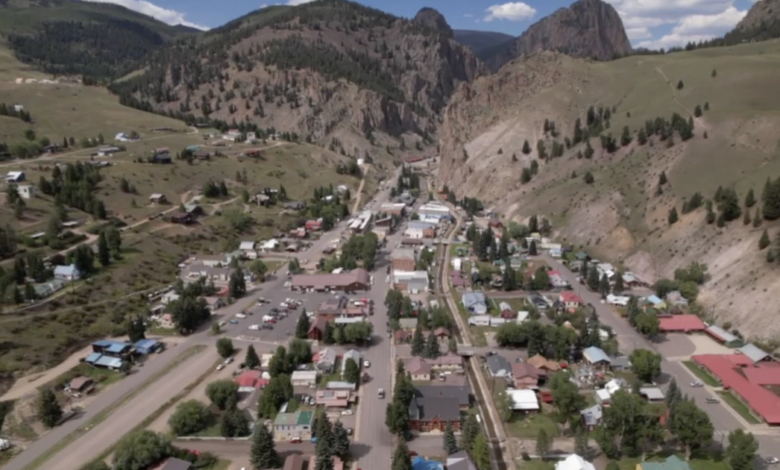
A common thought is that a career in the arts is not lucrative, but rural communities across the country are proving otherwise, as small towns are harnessing them to stimulate their economies and survive.
The town of Creede, a municipality of 350 people in the southwest mountains of Colorado, is a perfect example of just how life-saving the arts can be.
“That’s an amazing story; it really is,” said Scotty Lamb, a 6th-generation Creede resident.
For nearly its entire existence, Creede was a mining town that could not have skewed further from the arts, but in the 1960s, the town’s three mines started to close, leaving Creede and its families in a crisis of both identity and survival.
Lamb was born in the town’s days of coal but raised in its days of new, when, in 1965, the town turned to its old, abandoned movie theater for hope.
“Bit by bit, excitement was kind of generated about the idea of becoming a destination, a tourist destination, and in the early days it centered around the theater,” said Lamb.
Residents decided to turn the abandoned building into a performing arts center known as the Creede Repertory Theater. In the early days, it was filled with used furniture from locals as a way to create set pieces as the theater put on a different show each night.
Over time, word of the theater spread, and today, it is the focal point of Creede, which draws 20,000 people to its theater’s shows every summer.
“Over the years, I think there are different moments of tension here and there for this reason or that, but for the most part I think we realize we need each other,” said John DiAntonio, the producing artistic director at the Creede Repertory Theater.
The Creede Repertory Theater has eight full-time employees that live in the town year-round, but every summer, it hires 100 people from around the country who range from actors to set designers to box office attendants. For a town of 350 people, it makes the theater Creede’s largest economic generator as well as its largest employer.
Other towns across the country at harnessing the economic power of the arts as well. According to the Environmental Protection Agency, they include Douglas, GA; Mount Morris, NY; Roanoke, VA; Paducah, KY; Emporia, KS; Dubuque, IA; and Bend, OR.
“It seems integral. Like, it seems to be the nexus of a lot that goes on here,” said Tony King, an actor who moved to Creede in May to take part in its show Sherwood: The Adventures of Robin Hood this summer. “When you’re walking down the street people are coming up saying, ‘Oh that impacted me in this way,’ or ‘you were great in this show. My kids, it’s their first time seeing theater’ so on and so forth, and to see it all unfold for you in front of your face is truly remarkable.”
The beauty in Creede is innate as towering walls of rock and granite surround the town. It is an art as admirable as Creede’s ability to adapt and survive.
“I kind of hate to think about [what would have happened if the theater never existed],” added Lamb. “I’m sure we would have survived in some fashion, but we wouldn’t have thrived, we wouldn’t have flourished.”









